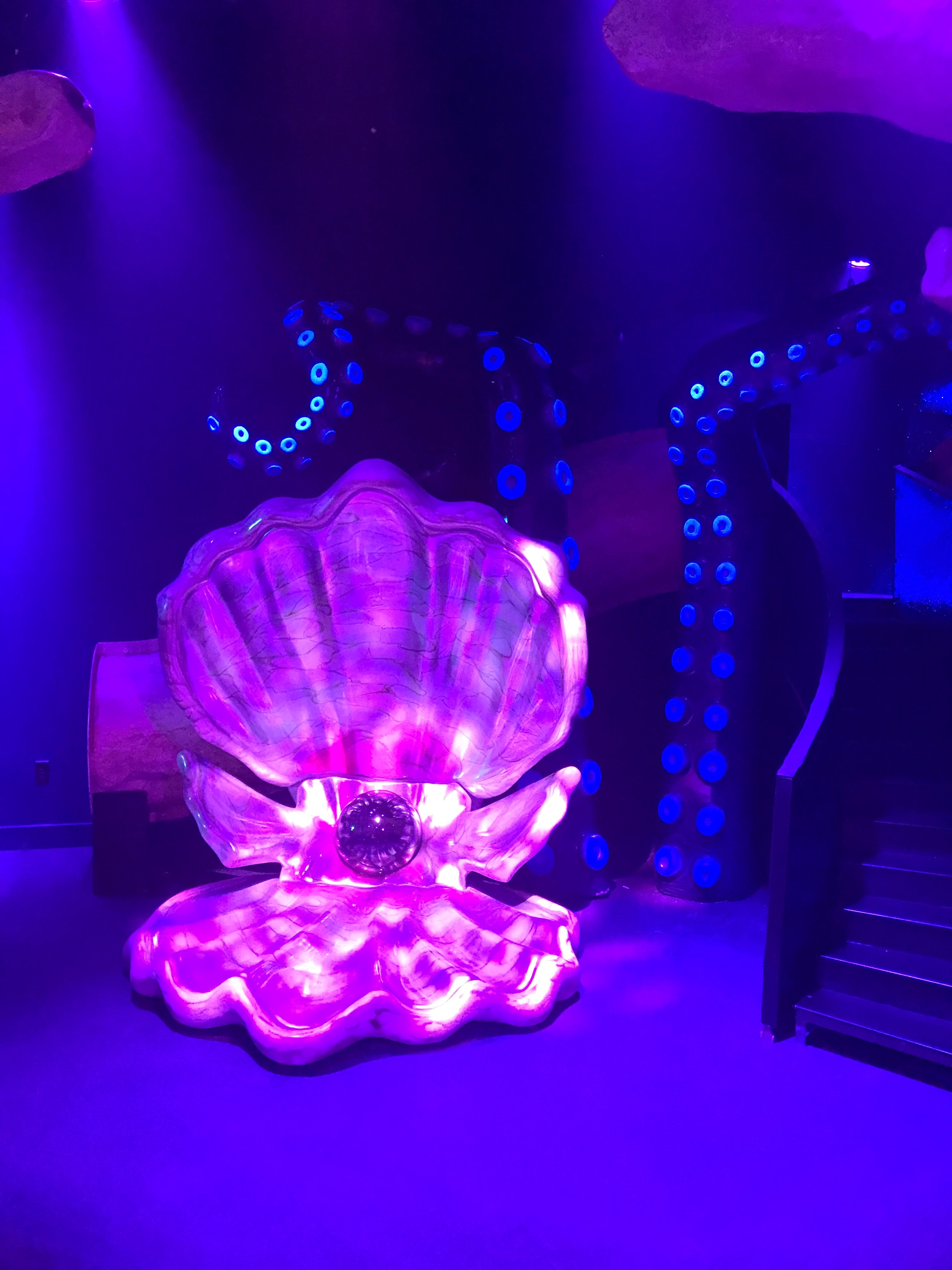
CAMP is a family experience company that combines a shop and play hybrid experience with an interactive and immersive approach for children. With locations throughout the United States from New York City to Los Angeles to Dallas to Atlanta, the staff wanted to eliminate the need to rebuild each store with each new theme. Working with SoundTube STNet IP-enabled audio products, the many CAMP locations achieved just that.
Miami-based integration company Midtown Video has been working with CAMP since 2014. That relationship began when Josh Wright, who was the director of IT for Quirky at the time, discovered Midtown Video when researching integrators that could help with live streaming. Ben Kaufman, founder of CAMP, later brought Wright on board as the director of IT for CAMP, extending the relationship to this new venture. It was Midtown Video that selected solutions from SoundTube, Biamp, LEA Professional, RDL, and many more to bring the underwater lair of Ariel to life.
CAMP's concept aimed to revive playfulness in toy stores. When customers enter a location through the "Canteen," they encounter a typical toy store, complete with shelves stocked with cool toys and sometimes even a milkshake shop. However, what truly sets CAMP apart is the "Magic Door," a giant bookshelf that opens into a transformative tunnel, leading to a theme-park-like experience.
[SCN Finally Goes Inside the Vegas Sphere ... and We Had a Ball]

The first theme was the Summer Camp Experience complete with canoes, a radio lab, a dance floor, and all the other camping traditions. Themes have included Cosmic Camp, Cooking Camp, Sports Camp, and now a string of partnerships have enabled Mickey and Friends, Paw Patrol, the Little Mermaid, Encanto, Trolls, Bluey, and more.
All the changing themes presented the most significant challenge faced by Midtown Video: How to avoid rebuilding each store with every new theme. To address this issue, CAMP and Midtown Video decided to standardize their installations, beginning with the Atlanta store. This standardization involved creating a Unistrut grid, facilitating the easy mounting of lights, projectors, and speakers. Additionally, networked products were introduced to provide greater flexibility and ease of management.
[Show Me the Monet: My Daughter and Her Friends Loved This Immersive Adventure]
With over 14 locations open and themes that rotate from city to city, the decision to abandon traditional 70-volt distributed audio for Dante-enabled speakers was pivotal. Instead of moving speakers and rewiring for each theme change, the new setup allows for dynamic re-zoning of audio playback by plugging a speaker into any network jack in the Unistrut grid, streamlining the transition between themes.

Midtown Video made several product choices to enhance the audiovisual experience at Camp. They utilized SoundTube’s STNet Dante-enabled IP PoE speakers, which provided flexibility and allowed for individual addressing of the speakers. RDL's Dante-enabled Bluetooth and analog input wall plates were also incorporated, enabling easy Bluetooth connectivity in the activity rooms. Biamp and RDL's products, such as the Dante-enabled DSP and volume wall controllers, were used to ensure seamless audio control in each zone.
SoundTube’s STNet system is an IP-addressable speaker system with proprietary 40 watts PoE to each of its speakers. STNet operates on Dante-enabled platforms allowing seamless connectivity with hundreds of other devices. In the CAMP stores, the IPD speakers connected to the Dante network via the SoundTube STNet Switch II which was set up centrally via software. This STNet configuration was ideal for the rapidly changing audio needs in the stores.
[CES 2024: How Tony Stark Can Save Pro AV (and Other Trends)]
The Little Mermaid-themed installation at CAMP's toy store, coinciding with the movie's release, was a resounding success. The immersive experience captivated children, and Midtown Video's meticulous attention to detail and reliable audiovisual setup contributed to the project's triumph. Minimal post-installation adjustments were needed, reinforcing the effectiveness of the implemented system.







